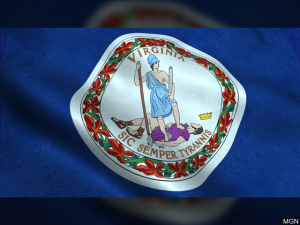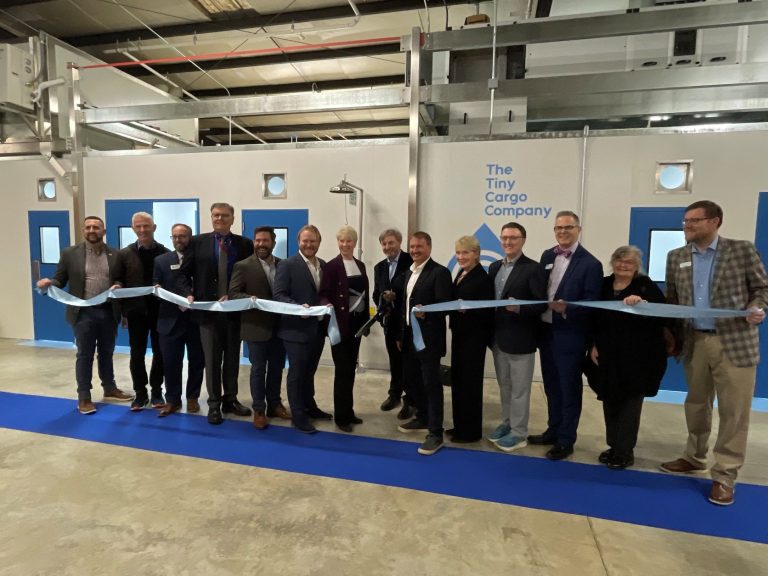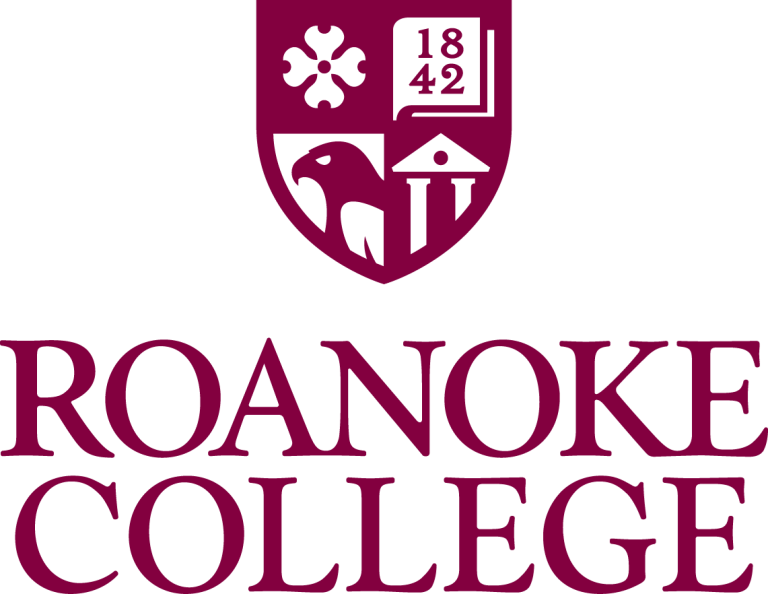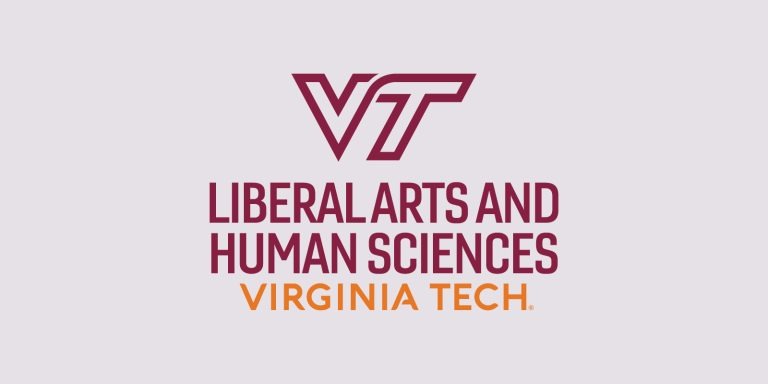 The Institute for Policy and Opinion Research (IPOR) at Roanoke College interviewed 702 adult residents of Virginia between Aug. 6 and Aug. 15, 2023, in a survey of public attitudes related to national
The Institute for Policy and Opinion Research (IPOR) at Roanoke College interviewed 702 adult residents of Virginia between Aug. 6 and Aug. 15, 2023, in a survey of public attitudes related to national
political anxiety, satisfaction with democracy, and trust in governmental institutions. The survey has a margin of error of 4.20%.
Approval, Favorability, and Directions of Virginia and Nation
Virginians’ approval of Gov. Glenn Youngkin and President Joe Biden remains approximately the same as our most recent poll in May, with 51% of Virginians approving of the way Youngkin is handling his job as governor and 40% approving of the way Biden is handling his job as president. The percentage of Virginians who believe things are generally on the wrong track in Virginia and the nation remains stable from our last poll, with 44% reporting that things are on the wrong track in Virginia and 73% reporting that things are on the wrong track in the nation. As for the legislatures at the national and state levels, 18% of Virginians approve of the way Congress is handling its job and 44% approve of the way the Virginia General Assembly is handling its job. The approval rating for the General Assembly has dropped about six points since our last poll in May. Finally, with all seats up for grabs in the General Assembly this November, approximately 55% of Virginians say they are at least somewhat closely following the legislative elections coming up this November.
Virginians’ favorability ratings for key political figures such as Youngkin, Biden and former President Donald Trump also remain stable from our last poll. Approximately 48% of Virginians report a favorable impression of Youngkin while 41% report an unfavorable impression. At the national level, 43% and 30% of Virginians report favorable impressions of Biden and Trump, respectively, while 53% and 65% report unfavorable impressions. We also asked Virginians about their impressions of the U.S. Supreme Court for the first time since our November 2022 poll, and the court’s favorability and unfavorability ratings remain about the same at 42% and 51%, respectively.
As we have reported before, there are substantial partisan gaps in Virginians’ attitudes, including 47- and 54-point gaps in Youngkin’s approval and favorability ratings, 70- and 75-point gaps in Biden’s approval and favorability ratings, and a 67-point gap in Trump’s favorability rating. These gaps also appear in Virginians’ attitudes about the direction of the nation (35-point gap) and favorability rating of the U.S. Supreme Court (44-point gap).
2024 Republican Nomination and Potential General Election Matchup
The Roanoke College Poll continued measuring Virginians’ opinions about the current Republican presidential nomination race, including who they would most prefer to be the Republican candidate for president in 2024. We provided survey respondents an updated field of candidates based on recent national polling, including Trump, Ron DeSantis, Chris Christie, Nikki Haley, Mike Pence, Vivek Ramaswamy and Tim Scott. Although he has not entered the race, we also included Youngkin in the list of candidates again.
Trump maintains a commanding lead of 47% as the first choice among self-reported Virginia Republicans, followed by DeSantis at 13% and the rest of the candidates in single digits. While Trump’s level of support remains about the same as our last poll, the percentage of Republicans reporting DeSantis as their first choice has dropped by 15% since our last poll in May. We also asked Virginians to report their second-choice candidate for the Republican nomination, where the results showed a more competitive field. Approximately 19% of Republicans reported DeSantis as their second choice, followed by Trump (17%), Ramaswamy (17%), Youngkin (14%), Scott (9%), Pence (8%) and Haley (6%).
Looking ahead to the 2024 presidential election, we asked Virginians who they would vote for in a hypothetical matchup between the two parties’ leading nominees. Biden leads Trump by about nine points at 51% to 42%, which is a drop from his 16-point lead we reported in our May poll. Looking at a breakdown by party identification, while both Biden and Trump have solidified support among Democrats and Republicans, respectively, our poll finds that Biden has a 21-point advantage among independents at 55% to 34%. We also asked Virginians, if Biden and Trump are the party nominees in 2024, whether they would consider voting for an independent candidate for president in 2024. Approximately 47% of Virginians said they would consider an independent candidate while 50% said they would not. Looking at the results by party identification, 54% of independents said they would consider voting for an independent presidential candidate.
Trump Indictments
We also asked Virginians for their opinions about three of the now four indictments facing Trump. The percentage of Virginians who reported hearing or reading a lot or some about former President Trump being indicted was 82% in the case involving allegations about classified documents, 77% in the case involving allegations about hush money payments, and 84% in the federal case involving allegations about the 2020 presidential election. For each of these cases, we asked Virginians whether they think Trump did something illegal, did something unethical but not illegal, or did nothing wrong. A majority of Virginians reported that they think Trump did something illegal in the cases involving classified documents (54%) and the 2020 election (51%), while about a third reported that they think he did something illegal in the case involving hush money payments (34%). There are substantial differences between Democrats and Republicans in these responses, including 70- and 72-point gaps in beliefs about whether Trump did something illegal in the classified documents and 2020 election cases, respectively, and a 54-point gap in beliefs about whether Trump did something illegal in the hush money payments case. Among independents, 64% reported that he did something illegal in the classified documents case, 33% reported he did something illegal in the hush money payments case, and 58% reported that he did something illegal in the 2020 election case.
Issues in Virginia and Nation
We also asked Virginians for their opinions on a range of public policy issues. First, on the issue of abortion, approximately 86% of Virginians think that abortion should be legal in at least some cases. Since the last time we measured this in November 2022, the percentage who think it should be legal in all cases is down six points and the percentage who think it should be legal in some cases is up five points. Second, on the issue of climate change, 74% of Virginians think that climate change is a great deal or some threat to the country’s well-being, while 64% think that climate change is having at least some effect on their local community. Third, on the issue of education, 44% of Virginians think that K-12 schools are having a positive effect on the way things are going in Virginia, while only 38% think that K-12 schools are having a positive effect on the way things are going in the country. Fourth, on the issue of student loan debt and forgiveness, 47% think that people who owe student loan debt should be paying their debt now, while 49% think that the debt should be deferred.
We asked Virginians for their opinions about recent U.S. Supreme Court decisions about the Biden administration’s student loan forgiveness program, the use of race in college admissions processes, and whether a wedding website designer can deny services to same-sex customers. Approximately 34% of Virginians approve and 44% disapprove of the court’s decision in the student loan case, while 46% approve and 33% disapprove of the court’s decision in the race and college admissions case. About 34% of Virginians approve of the court’s decision in the wedding website and same-sex customers case, while 45% disapprove of the decision.
Satisfaction with Democracy and the Election Campaign
IPOR is partnering with Dr. Matthew Bergman and Marymount University’s Center for Professional Ethics and Social Responsibility to measure the public’s satisfaction with democracy, trust in governmental institutions, and attitudes about campaign messaging. IPOR will field a series of questions about these topics in this year’s surveys.
The Roanoke College Poll asked Virginians’ opinions about their satisfaction with democracy and their exposure to political campaigns. On a 10-point scale, Virginians were overall more satisfied with how democracy works within the state (6.2) and their city or counties (6.3) than in the nation overall (5.1). While the state and city/county values are similar to our results from May, the level of satisfaction with the nation overall has slightly dropped by 0.2. There were notable party differences between these. On all three measures, Virginia Democrats had notably greater satisfaction than Virginia Republicans, with independents in the middle. At the national level, this difference was most stark, with Democrats having 0.9 greater satisfaction than Republicans. This drops to 0.6 greater at the local level and only 0.2 at the state level. Regionally, those living in the Shenandoah Valley are the least satisfied with the way democracy works at the country level while those in Northern Virginia and Southside are the most satisfied. At the state level, Southwest Virginia and Shenandoah Valley are the most satisfied while the Central Region around Richmond is the least satisfied. Such differences suggest that the underlying dynamics of the public’s satisfaction with democracy differs when they are asked about their national versus state level satisfaction.
With the upcoming elections, we also asked Virginians if they have noticed any advertisements related to political campaigns. About 55% of our respondents recalled seeing some sort of campaign advertisement. Of these, 22% recall seeing a positive advertisement while 50% recall seeing one that was negative. Respondents were also asked about the topics that were covered in the advertisement. About 60% said that the topic was related to a candidate’s competence or character while only 30% noted the focus was on an issue or specific policy. The ads were moderately memorable such that 44% of respondents were able to recall information contained in the ad, with many respondents reporting how they did not appreciate the attacks contained therein or questioned the veracity of the information provided.
Analysis
“Virginians’ attitudes about the direction of Virginia and the country remain mixed yet stable,” said Bryan Parsons, senior political analyst at IPOR. “This is also true in their approval and favorability ratings for political figures like Youngkin, Biden and Trump. With that said, partisanship continues to shape the way Virginians evaluate key political figures and events.”
“As far as the Republican presidential nomination process goes, Trump maintains a commanding lead over the rest of the Republican field. While most Virginians have heard at least some news about Trump’s indictments over the past few months, that doesn’t seem to be affecting his popularity for the Republican nomination.”
“Virginians are split in their opinions of Trump’s indictments. While a majority believes he has done something illegal in the cases involving allegations about classified documents and the 2020 presidential election, nearly a third believe he has either done nothing wrong or has done something unethical but not wrong in those cases. Only a third of Virginians believe he did something illegal in the case involving hush money payments.”
“The takeaway from this poll is that partisanship continues to shape Virginians’ views on everything from the direction of Virginia and the country to positions on key issues in public policy. There are substantial partisan gaps in attitudes on issues such as abortion, education, student loan debt, climate change and recent decisions by the U.S. Supreme Court. Our poll provides more evidence of the depths of polarization in American politics.”
Methodology
Interviewing for the Roanoke College Poll was conducted by The Institute for Policy and Opinion Research at Roanoke College in Salem, Virginia, between Aug. 6 and Aug. 15, 2023. A total of 702 completed interviews came from random telephone calls to 410 Virginians, and 292 responses were drawn from a proprietary online panel of Virginians. Telephone interviews were conducted in English. Cellphones constituted 58% of the completed phone interviews. Marketing Systems Group provided the telephone dialing frame and Lucid, LLC facilitated the online panel.
Questions answered by the sample of 702 respondents are subject to a sampling error of plus or minus approximately 4.20% at the 95% confidence level. This means that in 95 out of 100 samples like the one used here, the results should be at most 4.20 percentage points above or below the figure obtained by interviewing all Virginians with a home telephone or a cellphone. Where the results of subgroups are reported, the sampling error is higher.
Quotas were used to ensure that different regions of the commonwealth were proportionately represented. The data were statistically weighted for gender, race and age. Weighting was done to match Virginia data in the 2021 one-year American Community Survey (ACS). The design effect was 1.29; the reported margin of error above reflects this design effect.



